COPERNICUS
Nicolaus Copernicus 1473-1543
Nicolaus Copernicus was a canon, Polish physician and astronomer of German, author of the theory that the Sun is at the center of the Universe (heliocentric).
He was born into a family of merchants, February 19, 1473 in Thorn (Toruń), Royal Prussia (Kingdom of Poland).
After studying at the prestigious University of Cracow, Copernicus went to Italy to study canon law and medicine at the University of Bologna.
It is registered during astronomy Domenico Maria Novara (one of the first scientists to challenge the geocentric system of Ptolemy).
The interest of Copernicus in geography and astronomy was encouraged by his teacher. The two men watch together many occultations, eclipses of the moon, and the dimming of the star Aldebaran March 9, 1497 in Bologna.
In 1500 he was appointed professor of mathematics and lecturer on astronomy in Rome. 3 centuries BC. BC, the Greek Aristarchus of Samos (-310 -220 BC.) Already indicates that the Earth orbits the Sun on a circular orbit.
He is one of the first to propose a heliocentric universe, but such a revolutionary design still does not meet the approval of his contemporaries. Aristarchus also places the sphere of stars far beyond Earth's orbit, without providing supporting evidence.
However, this concept has been ignored for two millennia, since it was not until 1543 that the Polish monk Nicolaus Copernicus stated that the Earth was simply one of the planets orbiting the Sun. Of course, this theory went against the geocentric model widely accepted since Ptolemy had given a formal description. During this long dark period for science, the geocentric system was accepted as an inalienable truth by various schools of thought and the Catholic Church.
Finally, the idea of Copernicus was imposed because this system works better and uses less than unverified assumptions of Ptolemy.
The geocentric system required because of fireworks increasingly obscure to remain in line with ever more precise observations.
Then the Danish Tycho Brahe and Johannes Kepler's assistant German loved the Copernican model, other improvements consistent with the observations and the new theory. Nicolas Copernicus challenged the idea that the Earth is the center of the universe and for the first time, it represents the universe at its center, our sun and finally place all the other stars in orbit around it above. He was sentenced, posthumously, for this heresy against the church.
Finally, in 1610, the observations made by Galileo Galilei (1564-1642), using his first telescope, have provided evidence confirming the vision of Copernicus. Copernicus's book (De Revolutionibus Orbium Coelestium), of 400 pages was published in 1543 by a publisher in Nuremberg. In the preface Copernicus states, to avoid offending the Church, that his system is only a hypothesis.
Copernicus will be one of the first printed copies of his book, a few hours before dying. This canon then unknown, died May 24, 1543 at Frauenburg (Frombork).
Image: Nicolas Copernicus's theory is forbidden by the Church in the late sixteenth century, but paradoxically it has released the scientists of their theological prejudices. Portrait of Nicolas Copernicus - Painting of the German school, 15-16th century. © Library of the Paris Observatory.
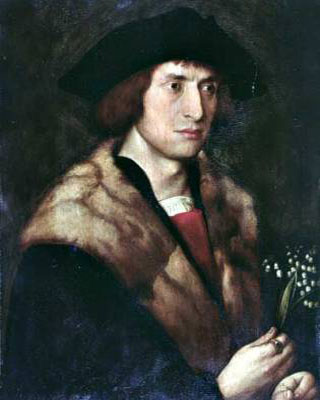
Articles on the same theme
1997 © Astronoo.com − Astronomy, Astrophysics, Evolution and Ecology.
"The data available on this site may be used provided that the source is duly acknowledged."
How Google uses data
Legal mentions
English Sitemap − Full Sitemap
Contact the author
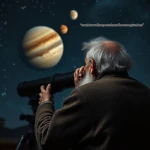 The Secrets Exchanged by Galileo and Kepler Were Coded
The Secrets Exchanged by Galileo and Kepler Were Coded
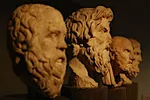 Influential Greek Thinkers
Influential Greek Thinkers
 What do we know about Pythagoras (≈570-495 av. J.-C)?
What do we know about Pythagoras (≈570-495 av. J.-C)?
 The philosophical characteristics of Aristotle (384 - 322 BC)
The philosophical characteristics of Aristotle (384 - 322 BC)
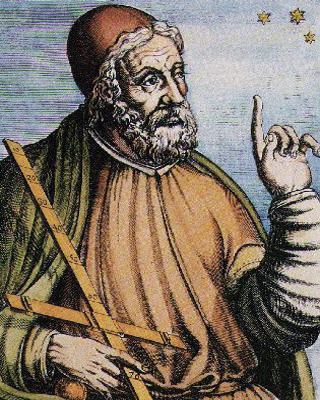 The world of Ptolemy (90-168)
The world of Ptolemy (90-168)
 Galileo (1564-1642) and the moons of Jupiter
Galileo (1564-1642) and the moons of Jupiter
 Kepler (1571-1630), planets follow ellipses
Kepler (1571-1630), planets follow ellipses
 Newton (1643-1727) and gravity
Newton (1643-1727) and gravity
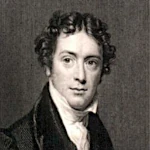 Michael Faraday, Self-Taught Genius: The Origins of Electrodynamics
Michael Faraday, Self-Taught Genius: The Origins of Electrodynamics
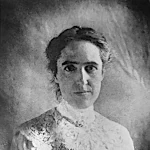 Henrietta Swan Leavitt (1868-1921), A Pioneer in Astronomy
Henrietta Swan Leavitt (1868-1921), A Pioneer in Astronomy
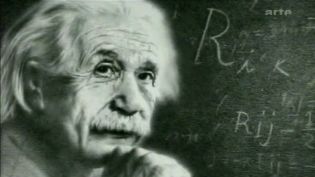 Einstein (1879-1955) and the concept of time
Einstein (1879-1955) and the concept of time
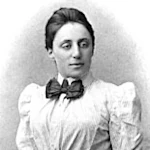 Amalie Emmy Noether (1882-1935), the Mathematician Who Revolutionized Algebra
Amalie Emmy Noether (1882-1935), the Mathematician Who Revolutionized Algebra
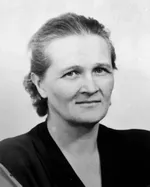 Cecilia Payne (1900-1979), the Scientist Who Revealed the Composition of Stars
Cecilia Payne (1900-1979), the Scientist Who Revealed the Composition of Stars
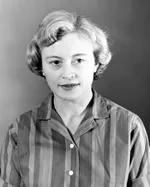 Margaret Burbidge (1919-2020): An Exceptional Journey in Astrophysics
Margaret Burbidge (1919-2020): An Exceptional Journey in Astrophysics
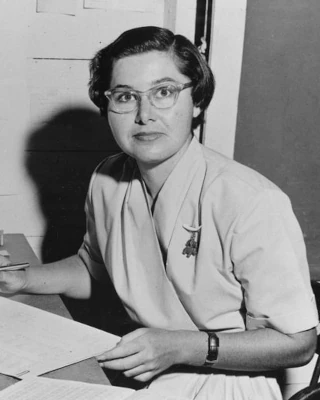 Vera Rubin (1928-2016), Revealer of the Invisible, Pioneer of Dark Matter
Vera Rubin (1928-2016), Revealer of the Invisible, Pioneer of Dark Matter
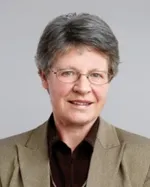 Jocelyn Bell Burnell (1943-), the Scientist Who Discovered Pulsars
Jocelyn Bell Burnell (1943-), the Scientist Who Discovered Pulsars
 Quotes about Science
Quotes about Science
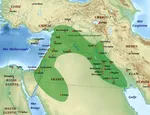 Babylonian Astronomy and Astrology: History and Contributions
Babylonian Astronomy and Astrology: History and Contributions
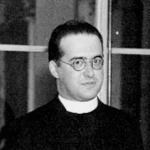 Georges Lemaître: The Primeval Atom at the Origin of the Cosmos
Georges Lemaître: The Primeval Atom at the Origin of the Cosmos